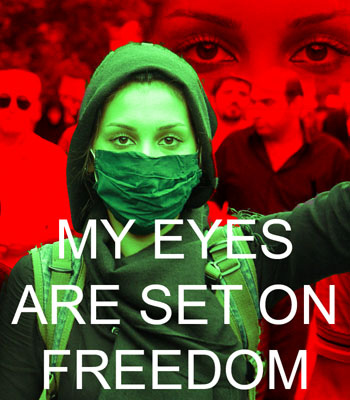World Environment Day: A World of Great Togetherness Which We Must Protect Together
by Rene Wadlow
2015-06-05 09:22:05
5 June has been designated by the UN General Assembly as "World Environment Day" with a focus this year on climate change in preparation for the climate conference to be held in Paris at the end of the year.
In practice, but not in theory, there is only one major topic on the “world agenda” per decade. Thus for the 1960s, after the independence and entry into the UN of the African states, the terms of trade between developed and less developed countries was the issue on the world agenda. This concern was manifested in 1964 by the first UN Conference on Trade and Development, (UNCTAD) followed by the creation of a large UNCTAD secretariat in the UN to help developing countries on conditions of trade, prices of raw materials and the transfer of technology. These are still important issues but they have become ‘routine’ and do not hold centre stage. Trade and development may not have been central on everyone’s mind during the 1960s. I recall chatting with Ernesto ‘Che’ Guevara in the halls of the Palais des Nations during the first UNCTAD when he was the Minister of Commerce of Cuba. While recognizing the importance of trade, he probably had other aims in mind.
The 1970s was the decade of ecology intellectually highlighted by Rene Dubos’ Only One Earth. (1).
The 1980s agenda was East-West nuclear policies in Europe, the end of the Berlin Wall and of Soviet power.
The 1990s focused on the violent rise of ethnic-based separatist movements, basically the breakup of former Yugoslavia and the Soviet Union — the nature and future of such movements.
The 2001-2011 Decade: The US hoped that the focus would be on the “War on Terror” and the rise of violent Islamic groups. In practice, these issues were of interest only to a small number of countries which were directly involved. However with the US focused on the War on Terror and Russia on re-shaping its own economy, no group of states could propose an alternative decade-long focus. The UN tried to provide a focus with the “Millennium Development Goals” agreed to in a 2000 UN summit conference. However, the Millennium Goals are a ‘grab-bag’ of diverse development issues. While each is important, there are too many to provide a clear ‘vision’ on which governments and non-governmental organizations could cooperate.
In the mid-1960s in the USA and parts of Europe, there was the start of broad ecological thinking highlighted by writers such as Kenneth Boulding, a Quaker, economist and peace researcher. Boulding along with Buckminster Fuller and Barbara Ward developed the concept of ‘Spaceship Earth'. Boulding stressed the need to modify education in light of the ecological realities. He wrote “It is obvious today that we can no longer think in terms of single static entities — but only in terms of dynamic changing processes and series of interacting events. The content of our education requires restructuring into new understandable wholes that it may be imparted, even at the primary levels, in terms of whole systems. Thus the principal task of education in this day is to convey from one generation to the next, a rich image of the total earth, that is, the idea of the earth as a total system…What formal education has to do is to produce people who are fit to be inhabitants of the planet. This has become an urgent necessity because for the first time in human history we have reached the boundaries of our planet and found that it is a small one at that. This generation of young people have to be prepared to live in a very small and crowed spaceship. Otherwise they are going to get a terrible shock when they grow up and discover that we have taught them how to live in a world long gone. The nightmare of the educator is what Veblen called ‘trained incapacity’ and we have to be constantly on the watch that this does not become one of our main products.”(2)
Ecological concerns grew and entered the thinking of enough governments so that the UN General Assembly decided to hold a special conference on ecology in 1972. The UN secretariat started its efforts for the Stockholm conference in Geneva in offices just across the street from my office in the Graduate Institute for Development Studies. Thus I often talked with the UN staff which would eat in our building since we had a cafeteria, and they did not. The head of the preparatory secretariat was Maurice Strong who became the Secretary General of the Conference itself. Strong is a Canadian who made a great deal of money early in his business life, and thus could spend the rest of his life in UN-related activities, not as a volunteer but paid much less than as head of a corporation. Strong is an intense, self-motivated person and the people who work with him are driven by the same energy. There are, no doubt, people who do not appreciate Strong, but they fade from the scene, and those who are left with him would not be surprised to see Strong walking across Lake Geneva
Since Strong came from the business world and not from the regular governmental diplomatic service, he has the respect for government representatives that is needed but not much more. Rather he has a high regard for ‘the people’ — at least those organized in non-governmental organizations and who are willing to try out new ideas and new methods of work. Thus, in Geneva, there was a group of us, UN Secretariat, university teachers and NGO representatives united by the desire to place ecological issues at the centre of the ‘world agenda’ despite a rather timid response from national governments.
1972 Stockholm saw the creation of what has now become an "institution" −a parallel conference held a few days earlier in the same city with representatives of NGOs — now called ‘civil society ‘ — who write a statement of what governments should say if they had the intelligence and courage of NGOs. Now, the NGOs work on their statement and alternative plan of action for many months in advance.
At the Stockholm NGO conference the conflicts predictably arose over population issues. At all international meetings going back to the League of Nations debates, when population questions are mentioned, there are those who suspect family planning as being a way to limit the number of the poor (usually seen as being of a different colour or ethnicity than the rest) or as a way of promoting teenage sex.
The 1972 Stockholm Conference led to the creation within many governments of a ‘Ministry of the Ecology’ or a sub-section of an existing ministry. The United Nations created the UN Environment Program (UNEP) of which Maurice Strong was the first Director. Strong, influenced by the idea of the importance of the ‘Third World’ pushed to have the UNEP headquarters in Kenya. He was the first Director and both he and UNEP then disappeared from the scene for the rest of the decade as unlike the other UN cities − New York, Geneva, and Vienna, − no one just stops by in Kenya, and there is no informal interaction with people from other UN agencies or NGOs.
Today, there is a certain revival of ecological thinking. Many of us believe that there needs to be a new UN Agency or greatly reinvigorated UN Environment Program with "high visibility" to be able to discuss as an equal with the World Bank, the Food and Agriculture Organization, and the International Labour Organization. Such a UN Environment Agency needs to have the drive and the outreach to be able to associate the large number of non-governmental organizations involved with ecological issues. There needs to be visible leadership so that people know where to turn for advice, help and support.
We need coordination and leadership to meet the challenges facing the human family as we develop positive forms of cooperation between humans and Nature.
***************************************************************************
Notes
1) Barbara Ward and Rene Dubos Only One Earth: The Care and Maintenance of a Small Planet (New York: W.W. Norton, 1972)
2) For a good overview of Kenneth Boulding's many interests see Cynthis E. Kerman Creative Tensions: The Life and Thought of Kenneth Bounding (Ann Arbor: University of Michigan Press)
also see: R. Buckminster Fuller An Operating Manual for Spaceship Earth (New York: Pocket Books, 1970)
**************************************************************************
Rene Wadlow, President and a representative to the United Nations, Geneva, Association of World Citizens.
Copyright mediaforfreedom.com


